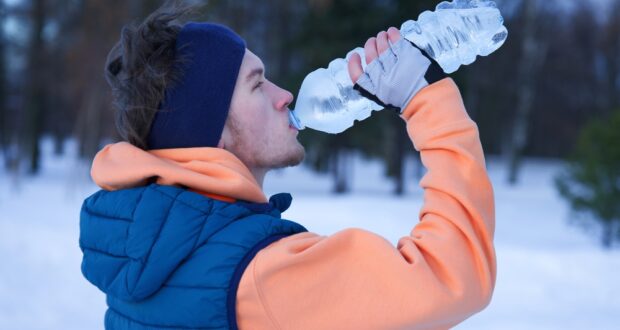Blog
Avoiding dehydration during cold weather
When temperatures fall, keeping heat and protecting against elements is often the first thing in your mind. However, hydration is a key aspect of survival, which is often omitted on cold days. Many people assume that dehydration is only concern for hot weather, but it is equally critical in winter. Here’s what you need to know about remaining cold hydration and why it matters more than you might think.
Why dehydration takes place on cold days
In winter, our reaction of desire decreases by up to 40%, which makes us less likely that we drink water when our bodies need it. This phenomenon, combined with increased loss of respiratory water (when the breath turns into visible steam), contributes to dehydration in cold climates. In addition, wearing heavy clothes and involvement in hiking or snow blades can cause sweat, additionally exhausting water reserves in the body.
One of the most insidious aspects of winter drainage is that its symptoms – distribution, dizziness and confusion – are often mistaken for cold or hypothermia. This makes it even more important to actively manage hydration levels.
Common myths about cold hydration
There are several misunderstandings about hydration on cold days, and understanding these myths can help make better choices:
1. Myth: You don’t sweat in the cold.
Reality: Even at frosty temperatures, your body sweats under layers of clothing. This sweat evaporates quickly, causing you losing water without noticing it.
2. Myth: Eating snow is a good hydration strategy.
Reality: while snow is water, eating it directly reduces body temperature, which can lead to hypothermia. Always melt the snow and bring it to a safe temperature before drinking.
3. Myth: You need to drink water only when you are thirsty.
Reality: On cold days, a reduced response to thirst can make you not need fluid. Drink regularly, even if you don’t feel thirsty.
Diagnosis of dehydration on cold days
Symptoms of dehydration in winter can be subtle, so it is necessary to maintain vigilance. Watch out for:
- Dry lips and cracked lips
- Dark urine or rare urination
- Fatigue or brightness
- Concentration difficulty
- Muscle cramps or headaches
If it remains uncovered, dehydration may exacerbate the conditions associated with the cold, making the body to adjust the temperature and increase the risk of hypothermia.
Tips for hydration for winter survival
Drink warm drinks.
Hot water, herbal teas or broths are excellent ways to maintain hydration while maintaining the core body temperature. Avoid caffeine drinks such as coffee or energy drinks, because they can act as diuretics, which leads to increased water loss.
1. Wear an insulated bottle.
Water can quickly freeze in cool conditions, so use isolated thermoses to prevent fluid to prevent ice. Add a pinch of salt to the water to reduce its freezing temperature and complete the electrolyte.
2. Eat water rich in water.
Foods such as oranges, apples and soups can contribute to the daily needs of hydration. Package snacks with hydration and energy, such as a trail with dried fruit or driving.
3. Set the drinking schedule.
Set reminders of drinking small amounts of water at regular intervals to fight reduced thirst. A target of at least 2-3 liters a day, adapting to the level of activity.
4. Avoid alcohol.
Alcohol gives a false impression of heat, while accelerating the loss of heat and water. Save solemn drinks when you are safely in the room and fully hydrated.
Even at frosty temperatures, your body sweats under layers of clothing, causing unnoticed water loss. Stay hydration this winter!
Special considerations regarding outdoor activities
Hydration becomes even more critical for people involved in winter outdoor activities, such as hiking, skiing or camping. Physical effort increases water loss, so plan in advance:
- Before leaving.
- Wearing light packaging or bottles that are easy to access without removing gloves.
- Melting snow in sudden cases, but only after cooking or cleaning it to remove impurities.
The role of hydration in maintaining body heat
Proper hydration not only maintains health – it is necessary to maintain heat. Water helps regulate body temperature by maintaining blood flow and supporting metabolic functions. Dehydration reduces blood volume, which hinders the body to behave heat and increases the risk of frostbite or hypothermia.
Hydration as a family priority
Parents and grandparents should emphasize the importance of hydration for children who may be more prone to dehydration on cold days. Make a family habit to bring water or warm drinks on trips and encourage children to drink regularly, even if they do not feel thirsty.
Maintaining hydration remains safe
Dehydration in cold weather is a hidden risk, but can be prevented in some preparation and awareness. Regardless of whether he goes to the desert or enjoy the season near the house, the hydration will remain hydration to keep health, warm and ready for adventure.
Bearing in mind these hydration strategies, you can use the winter months as best as possible, avoiding one of the most overlooked dangers this season. Remember: hydration is a year -round and can simply save your life on cold days.

